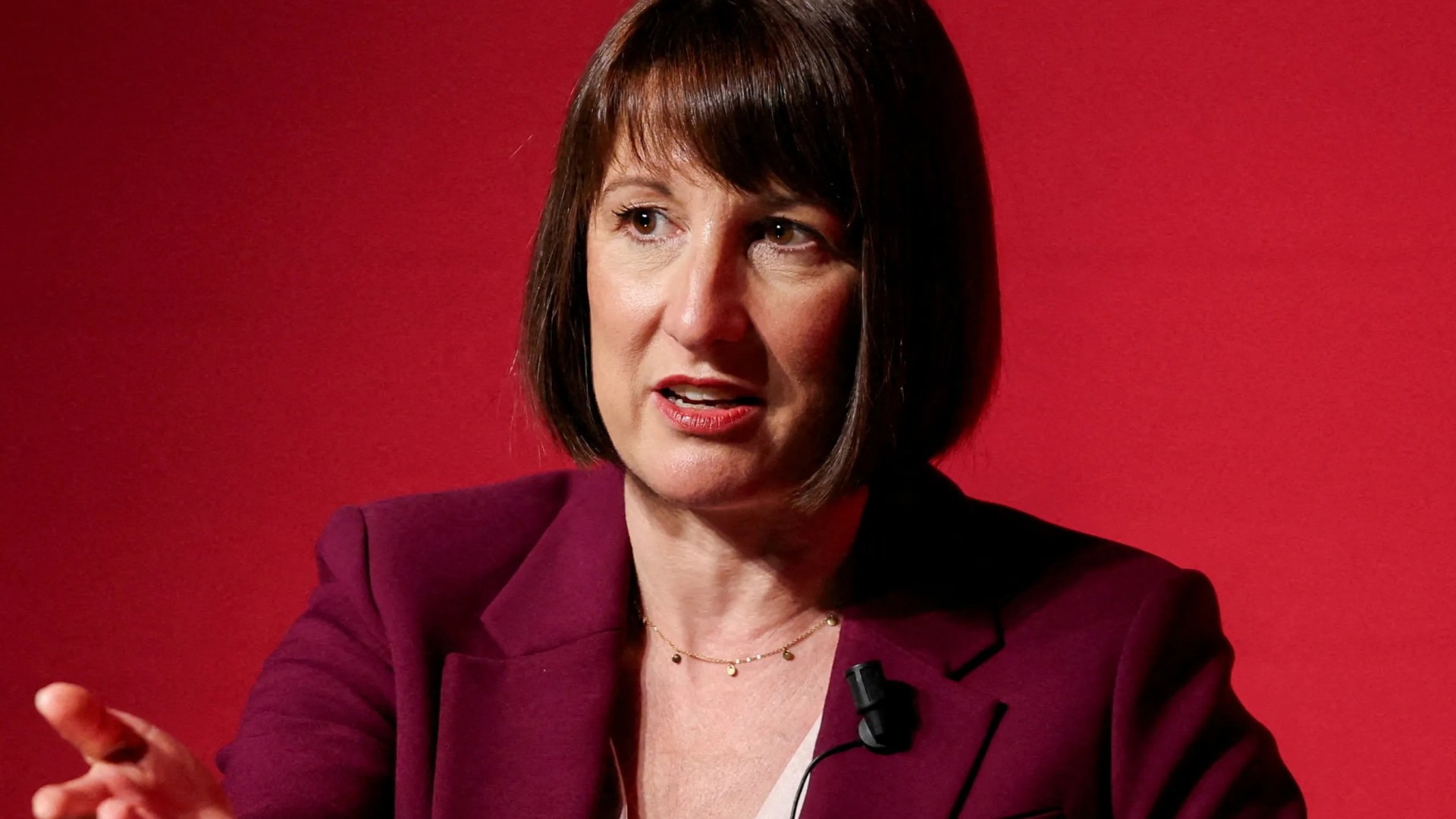Money
The browser extensions that are free to use and can save you money when shopping

EVERYONE loves a discount, voucher or promo code, but finding working codes for shopping websites can take a lot of work.
Dedicated voucher websites such as MyVoucherCodes.co.uk and HotUKDeals can help you find – and share – the latest offers.
But searching these sites takes time and effort, with codes typically only working a limited number of times or for a certain time period.
This is where web browser extensions (also called web widgets, add-ons or plug-ins) come in handy. Installing a free extension to your internet browser can mean finding the best working discount codes in a matter of seconds.
Instead of copying and pasting promo codes from random websites and hoping they work, the web extension does all the legwork for you by scanning and testing all available codes at the checkout and applying the best code to your shopping cart.
For the non-techy people, browsers are software programs we use to search the internet. The top three popular browsers are Chrome, Safari and Edge.
Browser extensions are small programs or ‘add-ons’ you can download to add new features to your browser.
Deepak Tailor, founder of LatestFreeStuff.co.uk, explained: “Free discount code browser extensions should be on everyone’s browser. After ad blockers, I think it’s the most important thing you could have. It’s like free money.
“When you’re on a shop’s website, with the Chrome extension installed for free, you’ll see a little pop-up suggesting there may be some discount codes available. At checkout, you can try the codes and see if it saves you any money.
“These extensions save you from manually searching on Google and going to lots of different coupon websites. It’s there right where you want it.”
ITV is the latest organisation to launch a discount code browser extension via its new consumer-facing affiliate marketing brand ‘ITV Kerching’. The add-on uses tech company Kindred’s technology to search for discount codes from retailers.
Other discount-hunting browser add-ons have been around much longer.
Honey launched in 2012 and was acquired by PayPal in 2020 for about $4billion (£3.73billion).
Now called PayPal Honey, the extension searches for promo codes from more than 30,000 online stores across the world. It also offers a price tracking tool called Droplist and a rewards system called Honey Gold.
Pouch is a UK-based browser extension, offering exclusive deals from thousands of UK retailers. Alternatively, VoucherCodes.co.uk has a linked browser extension called DealFinder which automates the search for codes. Coupert, which tests codes at more than 20,000 retailers, is worth experimenting with too.
Liz Hunter, director at Money Expert, said: “If you’re a frequent online shopper, consider installing more than one voucher code extension. Each extension may have unique deals and discounts in its database, so cross-referencing them can help you to maximise your savings.
“Some extensions allow you to set up notifications for your favourite retailers. This feature is well worth activating – it ensures you’re alerted as soon as new discount codes are available, so you never miss a great deal.”
While voucher code extensions are a no-brainer when it comes to saving money shopping online, there are other types of money-saving extensions too.
Price comparison extensions
For example, price comparison extensions can be useful when it comes to navigating sales such as Black Friday and Cyber Monday, which often leads to retailers overstating deals and savings.
“They can help you quickly identify genuine deals and avoid falling for inflated prices. Shoptimate and PriceBlink are great options here, which both automatically compare prices to other retailers selling the same item,” said Hunter.
PriceScout works in a similar way, automatically scanning more than 21,000 stores in order to let you know which retailer has the lowest price on the item you’re viewing. Its automatic coupon notifications will then alert you to money-saving codes to use at the checkout.
Earn cash back while shopping
There are also cashback browser extensions which allow you to earn money back on your online purchases by tracking your shopping activity and rewarding you with a percentage of your spending back in cash.
TopCashback’s browser extension both searches for discount codes and also automatically activates cashback offers, meaning users can earn money back on their purchases across a wide range of UK retailers, including Boots, eBay, and Expedia.
Adam Bullock, UK director at TopCashback, said: “On average, our members can save £300 a year by shopping through the site, and as long as the browser extension is installed, members don’t even have to click out to TopCashback to shop.
Shoppers can make purchases at their favourite brands directly through their sites just by clicking the ‘Activate Now’ button that pops up.”
Compare price histories
If you’re a regular Amazon user, a browser extension called CamelCamelCamel allows you to compare products and view price history on the site, meaning you can see how prices have fluctuated over time and when might be the best time to buy.
How do browser extensions make money? It’s basically a type of affiliate marketing strategy where the companies behind the plug-ins earn a commission from a brand if shoppers use a certain code.
Installing browser extensions is fairly straightforward. You can either click the buttons on the browser extension’s website, or go to the ‘extensions library’ in your web browser. They’re all free.
The only catch is that not every browser extension works on every web browser. ITV Kerching only works on Chrome, for example. They might not work on your phone’s browser either. If that’s the case, it will be best to use a laptop, PC or Mac for online shopping.
Tailor said: “You do need to watch out which you install. Check reviews and the permissions requested. Go with trusted UK brands that adhere to UK data protection laws (Honey and Latest Deals is such a company).
“There are many unofficial extensions that do not disclose what they’re doing with your data.”
How to save money on Christmas shopping
Consumer reporter Sam Walker reveals how you can save money on your Christmas shopping.
Limit the amount of presents – buying presents for all your family and friends can cost a bomb.
Instead, why not organise a Secret Santa between your inner circles so you’re not having to buy multiple presents.
Plan ahead – if you’ve got the stamina and budget, it’s worth buying your Christmas presents for the following year in the January sales.
Make sure you shop around for the best deals by using price comparison sites so you’re not forking out more than you should though.
Buy in Boxing Day sales – some retailers start their main Christmas sales early so you can actually snap up a bargain before December 25.
Delivery may cost you a bit more, but it can be worth it if the savings are decent.
Shop via outlet stores – you can save loads of money shopping via outlet stores like Amazon Warehouse or Office Offcuts.
They work by selling returned or slightly damaged products at a discounted rate, but usually any wear and tear is minor.
Money
Fusion appoints Harris as chief investment officer

Harris will focus on the group’s strategic growth and the living sector, as it looks to expand into European markets such as Spain and Germany.
The post Fusion appoints Harris as chief investment officer appeared first on Property Week.
Money
Huge DWP disability benefit changes in October Budget to save £3bn – but 1,000s could lose £5,000 a year

THOUSANDS of disabled Brits could lose up to £5,000 a year as Rachel Reeves is set to push through brutal welfare cuts.
The Chancellor is expected to slash £3bn from the welfare bill in the Budget – with £1.3bn of that coming from disability benefits.
The changes, first introduced by the Tories, will tighten access to sickness benefits through tough new rules under the Work Capability Assessment.
The Office for Budget Responsibility said the move would save £3bn over four years and the sum is already factored into Treasury spending assumptions.
But the tougher criteria could see 420,000 disabled or ill people lose vital financial support, with experts warning some will face devastating cuts of up to £5,000 annually.
The Resolution Foundation, an independent think tank, has warned that slashing the benefits will leave these people struggling to make ends meet, calling on the Chancellor to rethink the plan.
But Work and Pensions Secretary Liz Kendall yesterday said the benefits system needs the most far-reaching reform in a generation to get millions back into work.
Her department is preparing to roll out a radical overhaul of welfare, promising a pro-work, pro-opportunity agenda.
There are 2.8 million people off work due to long-term sickess, with the cost of benefits for working age people set to reach £64bn by the end of the Parliament.
This figure will be an increase of £30bn on pre-pandemic levels.
Before the election, former Work and Pensions Mel Stride unveiled plans to tighten welfare rules to require an extra 400,000 people signed off long-term to go back to work.
They would automatically lose some of their benefits payments, with the hope being that they would eventually enter the workforce, cutting the welfare bill even further.
Ms Reeves has committed to delivering the £3bn in savings, but it will be up Ms Kendall to determine the specific changes needed to achieve that target.
A Government source said: “We have always said that the Work Capability Assessment is not working and needs to be reformed or replaced alongside a proper plan to support disabled people to work.
“We will deliver savings through our own reforms, including genuine support to help disabled people into work.”
Predictions for the Autumn Statement
The Sun’s Head of Consumer Tara Evans reveals the top predictions for the Autumn Statement:
Winter Fuel Payments
Chancellor Rachel Reeves has already announced that Winter Fuel Payments will be limited to those receiving pension credit and certain benefits. The benefit is worth up to £300 per year and currently is available to everyone over state pension age and those on certain benefits.
No rises to some taxes
Keir Starmer promised there would be no rises to National Insurance, Income Tax, Corporation Tax or VAT as part of Labour’s manifesto in the election race.
Inheritance Tax
It has been predicted that the Chancellor Racheal Reeves will make changes to inheritance tax rates or thresholds. One suggestion is the potential shortening of the gift period before death for tax exemptions.
Pensions
Pensions featured very high up in the King’s Speech, was this a hint at how high on the agenda it will feature in the budget? Experts say there are a number of options, including reintroducing the lifetime allowance cap. Ms Reeves has previously campaigned to reduce the tax relief that higher earners get on their pensions and to introduce a flat rate of 33% instead. Another possible option is changing the rules around pensions and inheritance tax.
Capital Gains Tax (CGT)
There is speculation that the £3,000 tax-free allowance could be scrapped or there may be an extension of CGT to other assets.
Business Rates
There are rumours of reforms to support small businesses, possibly basing rates on land value.
Fuel Duty
Possible rise in fuel duty, reversing the freeze since 2011 and impacting household costs. The Sun has backed drivers as part of its Keep It Down campaign since the start of 2011.
Money
Advisers’ provider selection significantly changed by value and price


Advisers’ provider selection significantly changed when considering value and price in line with Consumer Duty Regulations, according to latest data from Protection Guru.
The data, published today (18 October), shows a divergence between traditional market shares and adviser product recommendations when value and price are considered.
It looks at recommended products by those UK-based advisers using the Protection Guru Pro (PGP) service in the first two quarters of 2024 (January-March/April-June).
PGP is the only service that allows advisers in the UK to look at quality and price to assess value across the full suite of protection products, covering life insurance, critical illness, income and business protection.
By combining these measurements, advisers can filter the vast number and variations of protection products, and only compare the products that meet their clients’ needs.
The data highlights that when quality and price are considered, providers such as Royal London and Guardian attract a considerable share of recommendations.
It also shows that adviser recommendations for Vitality products increased quarter-on-quarter.
The analysis found that across all products, advisers using PGP tend to recommend the fourth or fifth best product that fared 9th or 10th by price alone. This suggests an increasing shift to quality products in the market.
This demonstrates that when advisers follow the FCA’s Consumer Duty requirements and identify value by assessing quality and price, they are typically balancing both factors to get the optimal client outcome, according to Protection Guru.
Ian McKenna, founder of Protection Guru, said: “By taking price and quality into account across the full range of protection products, we give advisers the tools to do their job in the best possible way, and follow the FCA’s guidance under the Consumer Duty Regulations. The data demonstrates our service is driving real changes in adviser behaviour – leading to better consumer outcomes.”
Money
The Morning Briefing: Advisers’ provider selection changed by value and financial education to young children.


Good morning and welcome to your Morning Briefing for Friday 18 October 2024. To get this in your inbox every morning click here.
Provider selection significantly changed by value and price
Advisers’ provider selection significantly changed when considering value and price in line with Consumer Duty Regulations, according to latest data from Protection Guru.
The data published today (18 Oct.) shows a divergence between traditional market shares and adviser products recommendation when value and price are considered.
It looks at recommended products by those UK-based advisers using the Protection Guru Pro (PGP) service in the first two quarters of 2024 (January-March/April-June).
Delivering financial education to young children
It has been 10 years since financial education was introduced to the national curriculum for secondary schools in England.
At primary school level, the national curriculum provides a framework for young children to recognise coins and learn how to use money through simple ‘number problems’ in maths lessons.
The ‘real life’ context comes later, during citizenship or ‘personal, social, health and economic’ education from age 11.
However, some schools do not follow the national curriculum, adding weight to the criticism that financial education is inconsistent in England.
Quote Of The Day
The ECB stopped short of forward guidance, but we expect quarter point cuts every meeting between now and April.
-Mahmood Pradhan, head of global macro economics, Amundi Investment Institute, comments on the ECB interest rate decision.
Stat Attack
Shepherds Friendly surveyed 2,000 Brits on their attitudes toward investing. Key stats from the survey:
27%
of all those surveyed indicate that the fear of losing money is the biggest barrier. This is followed closely by risk (23%) and the cost of living (17%).
Around one in 10
people feel that investing is complex and that they lack understanding of it. Overall,
39%
of Brits don’t currently invest money anywhere.
61%
of Brits are investing despite the cost-of-living crisis.
52%
of investors expect to see an ROI and 28% say they like to take risks with investing.
Higher earners favour crypto investments, shares, and stocks, whilst Gen-Zs are investing their highest amount in commodities.
Source: Shepherds Friendly
In Other News
Morningstar today (18 Oct.) published its European Asset Flows data and commentary for September 2024. The data revealed that EUR 36.5 bn of net inflows were drawn by Europe-domiciled long-term funds in September, and EUR 121 bn in the third quarter.
Valerio Baselli, senior international editor, Morningstar, said: “Asset classes recovered swiftly from the volatility seen at the start of August. Investors continued to show positive sentiment, arguably driven by the decisions of the US Federal Reserve and the European Central Bank to cut interest rates and poured EUR 36.5 bn into long-term Europe-domiciled funds in September.
“Between July and September, global equities surged to all-time highs despite pronounced volatility on several occasions. Emerging markets performed strongly, supported by the announcement of new stimulus measures in China. In the quarter, equity funds took in EUR 41.7 bn (EUR 11.8 in September). This was a one-sided story: September marked the 18th month of net outflows of the past 19 for active equity strategies.”
UK businesses remain wary of Labour after charm offensive (Bloomberg)
Amazon AWS CEO: Quit if you don’t want to return to office (Reuters)
Companies House to stop fraudsters joining up under fake names like ‘Darth Vader’ (The Guardian)
Did You See?
Pensions providers and industry experts are having their final say on the FCA’s value for money framework proposals ahead of the consultation closing date (17 October).
In August, the FCA laid out plans to provide millions of pensions savers with better value for money.
Under the proposals, defined contribution (DC) pension schemes will be required to publicly disclose how they are doing across the three key metrics.
These are investment performance, quality of service and cost.
Each will be assessed against a red, amber and green ‘traffic light system’ to determine which – if any – need attention.
Poorly performing schemes will be required to provide an action plan of how they will improve or if they don’t, “protect” savers by transferring them to better schemes.
Money
Yorkshire Tea confirms popular breakfast tea will be axed as shoppers complain of national shortage

YORKSHIRE Tea has discontinued its popular “Toast and Jam” teabags – leading sweet-toothed fans to plead for them back.
The flavour was launched in 2020 as “a strong breakfast blend with all of the loveliness of jam on toast without the crumbs.”
But after years at the breakfast table, the comforting brew is gradually being phased out in shops, leaving customers desperately scrambling for the final boxes.
One said on social media site X.com: “Please tell me that you are still doing Jam on Toast teabags? I can’t get them in the supermarket!!!!! And need them badly.”
Another added: “Is your toast and jam tea still a thing? Tried 3 different supermarkets in North Devon and it isn’t anywhere. Send help, or jammy tea! The search continues!””
A third said: “Have you stop making jam and toast… I need my morning fix! Help this is a genuine emergency! Asda and Sainsbury’s online stopped stocking it! Helllllppppp.”
Meanwhile, Dr Rachael Door joked: “There appears to be a national shortage of @YorkshireTea Jam and Toast and I’m nearly at breaking point.”
It’s understood that the blend is now being replaced by the brand’s new “Caramelised Biscuit Brew” – which is designed to stop you from craving biscuits with tea.
The new flavour is available to buy from Ocado and Sainsbury’s for £2.30.
Yorkshire Tea periodically introduces new flavours to keep its range fresh and innovative, with “Malty Biscuit Brew” being another sweet flavour in the range.
Tom Church, co-founder of LatestDeals.co.uk, said: “By making space for the new Caramelised Biscuit Brew, Yorkshire Tea is showing that being inventive is just as important in the tea aisle as it is for chocolate or sweets.
“Innovation is marketing, as they say. I think they will have found most people probably try these different flavours once or twice for novelty.
“There will be some die-hard fans who keep drinking, but the majority probably tail off.
“Adventurous tea flavours gives Yorkshire Tea and chance to stand out, not just on the aisle but in the important social media space too.
“Biscoff biscuit recipes have been trending on TikTok and Instagram for years, and a tea bag that tastes as if you’ve dunked a Biscoff in it? Well, yes please.”
Yorkshire Tea has not commented on the disappearance of Toast and Jam teabags to Sun Money.
But this week it responded to one desperate fan saying: “We’re afraid it’s being discontinued but it’s still available in Tesco, Amazon and Ocado for a little while.”
The Sun had a look at various different retailers and can confirm it is available to buy from Ocado, while stocks last, for £2.30.
Tesco is also still selling the product for £2.
Meanwhile, Amazon is still advertising a multipack of four boxes for £19.98.
It does not appear to be available to buy from Sainsbury’s, Morrisons or Asda.
It’s not the only disappointment for fans of sweet treats.
Earlier this month we revealed how fans of Smarties Buttons were distraught after the loved snack was axed.
Meanwhile, M&S fans have had a series of disappointments recently after the brand decided to axe Connie the Caterpillar sweets and Percy Pig Phizzy Pig Chews.
Why are products axed or recipes changed?

ANALYSIS by chief consumer reporter James Flanders.
Food and drinks makers have been known to tweak their recipes or axe items altogether.
They often say that this is down to the changing tastes of customers.
There are several reasons why this could be done.
For example, government regulation, like the “sugar tax,” forces firms to change their recipes.
Some manufacturers might choose to tweak ingredients to cut costs.
They may opt for a cheaper alternative, especially when costs are rising to keep prices stable.
For example, Tango Cherry disappeared from shelves in 2018.
It has recently returned after six years away but as a sugar-free version.
Fanta removed sweetener from its sugar-free alternative earlier this year.
Suntory tweaked the flavour of its flagship Lucozade Original and Orange energy drinks.
While the amount of sugar in every bottle remains unchanged, the supplier swapped out the sweetener aspartame for sucralose.
Money
Page not found | Money Marketing


News and analysis delivered directly to your inbox
Sign up today to receive our range of news alerts including Morning News, the Daily Briefing and Latest News.
Money Marketing Events
Be the first to hear about our industry-leading annual conferences and events, including the Money Marketing Awards and Money Marketing Interactive Leeds and London.
Have your say
Only registered users can post comments. As the voice of the adviser community, our content generates robust debate. Register today and make your voice heard.
Monthly magazine
Apply for your FREE Money Marketing subscription and benefit from our award-winning editorial content delivered to your home, office or inbox every month.
News and analysis delivered directly to your inbox
Sign up today to receive our range of news alerts including Morning News, the Daily Briefing and Latest News.
Money Marketing Events
Be the first to hear about our industry-leading annual conferences and events, including the Money Marketing Awards and Money Marketing Interactive Leeds and London.
Have your say
Only registered users can post comments. As the voice of the adviser community, our content generates robust debate. Register today and make your voice heard.
Monthly magazine
Apply for your FREE Money Marketing subscription and benefit from our award-winning editorial content delivered to your home, office or inbox every month.
-

 Science & Environment4 weeks ago
Science & Environment4 weeks agoHyperelastic gel is one of the stretchiest materials known to science
-

 Science & Environment4 weeks ago
Science & Environment4 weeks agoHow to unsnarl a tangle of threads, according to physics
-

 Science & Environment4 weeks ago
Science & Environment4 weeks ago‘Running of the bulls’ festival crowds move like charged particles
-

 Technology3 weeks ago
Technology3 weeks agoIs sharing your smartphone PIN part of a healthy relationship?
-

 Technology1 month ago
Technology1 month agoWould-be reality TV contestants ‘not looking real’
-

 Science & Environment4 weeks ago
Science & Environment4 weeks agoMaxwell’s demon charges quantum batteries inside of a quantum computer
-

 Science & Environment4 weeks ago
Science & Environment4 weeks agoLiquid crystals could improve quantum communication devices
-

 Womens Workouts4 weeks ago
Womens Workouts4 weeks ago3 Day Full Body Women’s Dumbbell Only Workout
-

 Science & Environment3 weeks ago
Science & Environment3 weeks agoX-rays reveal half-billion-year-old insect ancestor
-

 Science & Environment4 weeks ago
Science & Environment4 weeks agoQuantum ‘supersolid’ matter stirred using magnets
-

 Science & Environment4 weeks ago
Science & Environment4 weeks agoSunlight-trapping device can generate temperatures over 1000°C
-

 Science & Environment4 weeks ago
Science & Environment4 weeks agoWhy this is a golden age for life to thrive across the universe
-

 Science & Environment4 weeks ago
Science & Environment4 weeks agoNerve fibres in the brain could generate quantum entanglement
-

 Science & Environment4 weeks ago
Science & Environment4 weeks agoLaser helps turn an electron into a coil of mass and charge
-

 Science & Environment4 weeks ago
Science & Environment4 weeks agoQuantum forces used to automatically assemble tiny device
-

 Science & Environment4 weeks ago
Science & Environment4 weeks agoA slight curve helps rocks make the biggest splash
-

 Science & Environment4 weeks ago
Science & Environment4 weeks agoITER: Is the world’s biggest fusion experiment dead after new delay to 2035?
-

 Science & Environment4 weeks ago
Science & Environment4 weeks agoHow to wrap your mind around the real multiverse
-
News1 month ago
the pick of new debut fiction
-

 News4 weeks ago
News4 weeks agoOur millionaire neighbour blocks us from using public footpath & screams at us in street.. it’s like living in a WARZONE – WordupNews
-

 Science & Environment4 weeks ago
Science & Environment4 weeks agoTime travel sci-fi novel is a rip-roaringly good thought experiment
-

 Science & Environment4 weeks ago
Science & Environment4 weeks agoNuclear fusion experiment overcomes two key operating hurdles
-

 Technology3 weeks ago
Technology3 weeks agoWhy Machines Learn: A clever primer makes sense of what makes AI possible
-

 News1 month ago
News1 month ago▶️ Hamas in the West Bank: Rising Support and Deadly Attacks You Might Not Know About
-

 News4 weeks ago
News4 weeks ago▶️ Media Bias: How They Spin Attack on Hezbollah and Ignore the Reality
-

 Science & Environment4 weeks ago
Science & Environment4 weeks agoPhysicists are grappling with their own reproducibility crisis
-

 Science & Environment4 weeks ago
Science & Environment4 weeks agoA new kind of experiment at the Large Hadron Collider could unravel quantum reality
-

 News4 weeks ago
News4 weeks agoYou’re a Hypocrite, And So Am I
-

 Science & Environment4 weeks ago
Science & Environment4 weeks agoPhysicists have worked out how to melt any material
-
Business3 weeks ago
Eurosceptic Andrej Babiš eyes return to power in Czech Republic
-

 Technology3 weeks ago
Technology3 weeks agoMicrophone made of atom-thick graphene could be used in smartphones
-

 Technology3 weeks ago
Technology3 weeks agoUkraine is using AI to manage the removal of Russian landmines
-

 Business2 weeks ago
Business2 weeks agoWhen to tip and when not to tip
-

 Sport2 weeks ago
Sport2 weeks agoCoco Gauff stages superb comeback to reach China Open final
-

 Science & Environment1 month ago
Science & Environment1 month agoCaroline Ellison aims to duck prison sentence for role in FTX collapse
-

 Sport4 weeks ago
Sport4 weeks agoJoshua vs Dubois: Chris Eubank Jr says ‘AJ’ could beat Tyson Fury and any other heavyweight in the world
-

 News1 month ago
News1 month agoNew investigation ordered into ‘doorstep murder’ of Alistair Wilson
-
News4 weeks ago
The Project Censored Newsletter – May 2024
-

 Sport3 weeks ago
Sport3 weeks agoWatch UFC star deliver ‘one of the most brutal knockouts ever’ that left opponent laid spark out on the canvas
-

 Sport2 weeks ago
Sport2 weeks agoWales fall to second loss of WXV against Italy
-

 Technology3 weeks ago
Technology3 weeks agoUniversity examiners fail to spot ChatGPT answers in real-world test
-

 Technology2 weeks ago
Technology2 weeks agoThis AI video generator can melt, crush, blow up, or turn anything into cake
-
Business2 weeks ago
DoJ accuses Donald Trump of ‘private criminal effort’ to overturn 2020 election
-

 Health & fitness1 month ago
Health & fitness1 month agoThe secret to a six pack – and how to keep your washboard abs in 2022
-

 Science & Environment4 weeks ago
Science & Environment4 weeks agoRethinking space and time could let us do away with dark matter
-

 Science & Environment4 weeks ago
Science & Environment4 weeks agoA tale of two mysteries: ghostly neutrinos and the proton decay puzzle
-

 Technology3 weeks ago
Technology3 weeks agoQuantum computers may work better when they ignore causality
-

 Technology3 weeks ago
Technology3 weeks agoRobo-tuna reveals how foldable fins help the speedy fish manoeuvre
-
Business3 weeks ago
Should London’s tax exiles head for Spain, Italy . . . or Wales?
-

 MMA3 weeks ago
MMA3 weeks agoConor McGregor challenges ‘woeful’ Belal Muhammad, tells Ilia Topuria it’s ‘on sight’
-

 Football3 weeks ago
Football3 weeks agoFootball Focus: Martin Keown on Liverpool’s Alisson Becker
-

 Sport3 weeks ago
Sport3 weeks agoWorld’s sexiest referee Claudia Romani shows off incredible figure in animal print bikini on South Beach
-

 News2 weeks ago
News2 weeks agoMassive blasts in Beirut after renewed Israeli air strikes
-

 Science & Environment4 weeks ago
Science & Environment4 weeks agoFuture of fusion: How the UK’s JET reactor paved the way for ITER
-

 News4 weeks ago
News4 weeks agoIsrael strikes Lebanese targets as Hizbollah chief warns of ‘red lines’ crossed
-
Politics3 weeks ago
Robert Jenrick vows to cut aid to countries that do not take back refused asylum seekers | Robert Jenrick
-

 Technology3 weeks ago
Technology3 weeks ago‘From a toaster to a server’: UK startup promises 5x ‘speed up without changing a line of code’ as it plans to take on Nvidia, AMD in the generative AI battlefield
-

 Technology1 month ago
Technology1 month agoThe ‘superfood’ taking over fields in northern India
-
Politics4 weeks ago
UK consumer confidence falls sharply amid fears of ‘painful’ budget | Economics
-

 News4 weeks ago
News4 weeks agoWhy Is Everyone Excited About These Smart Insoles?
-

 News4 weeks ago
News4 weeks agoFour dead & 18 injured in horror mass shooting with victims ‘caught in crossfire’ as cops hunt multiple gunmen
-

 Technology3 weeks ago
Technology3 weeks agoGet ready for Meta Connect
-

 Health & fitness3 weeks ago
Health & fitness3 weeks agoThe 7 lifestyle habits you can stop now for a slimmer face by next week
-
Business2 weeks ago
Bank of England warns of ‘future stress’ from hedge fund bets against US Treasuries
-

 MMA2 weeks ago
MMA2 weeks agoDana White’s Contender Series 74 recap, analysis, winner grades
-

 MMA2 weeks ago
MMA2 weeks agoJulianna Peña trashes Raquel Pennington’s behavior as champ
-

 TV2 weeks ago
TV2 weeks agoPhillip Schofield accidentally sets his camp on FIRE after using emergency radio to Channel 5 crew
-

 Technology2 weeks ago
Technology2 weeks agoAmazon’s Ring just doubled the price of its alarm monitoring service for grandfathered customers
-

 News2 weeks ago
News2 weeks agoHeartbreaking end to search as body of influencer, 27, found after yacht party shipwreck on ‘Devil’s Throat’ coastline
-

 Technology2 weeks ago
Technology2 weeks agoA very underrated horror movie sequel is streaming on Max
-
Business2 weeks ago
Ukraine faces its darkest hour
-

 TV2 weeks ago
TV2 weeks agoসারাদেশে দিনব্যাপী বৃষ্টির পূর্বাভাস; সমুদ্রবন্দরে ৩ নম্বর সংকেত | Weather Today | Jamuna TV
-

 MMA2 weeks ago
MMA2 weeks agoPereira vs. Rountree prediction: Champ chases legend status
-

 News2 weeks ago
News2 weeks agoHull KR 10-8 Warrington Wolves – Robins reach first Super League Grand Final
-

 News2 weeks ago
News2 weeks ago▶ Hamas Spent $1B on Tunnels Instead of Investing in a Future for Gaza’s People
-

 Entertainment2 weeks ago
Entertainment2 weeks agoChristopher Ciccone, artist and Madonna’s younger brother, dies at 63
-

 News1 month ago
News1 month agoHow FedEx CEO Raj Subramaniam Is Adapting to a Post-Pandemic Economy
-

 Science & Environment4 weeks ago
Science & Environment4 weeks agoBeing in two places at once could make a quantum battery charge faster
-

 CryptoCurrency4 weeks ago
CryptoCurrency4 weeks agoCardano founder to meet Argentina president Javier Milei
-

 Science & Environment4 weeks ago
Science & Environment4 weeks agoWhy we need to invoke philosophy to judge bizarre concepts in science
-

 Science & Environment4 weeks ago
Science & Environment4 weeks agoUK spurns European invitation to join ITER nuclear fusion project
-

 Sport4 weeks ago
Sport4 weeks agoUFC Edmonton fight card revealed, including Brandon Moreno vs. Amir Albazi headliner
-
Politics4 weeks ago
‘Appalling’ rows over Sue Gray must stop, senior ministers say | Sue Gray
-

 TV4 weeks ago
TV4 weeks agoCNN TÜRK – 🔴 Canlı Yayın ᴴᴰ – Canlı TV izle
-

 Science & Environment4 weeks ago
Science & Environment4 weeks agoMeet the world's first female male model | 7.30
-

 Womens Workouts4 weeks ago
Womens Workouts4 weeks ago3 Day Full Body Toning Workout for Women
-

 Servers computers3 weeks ago
Servers computers3 weeks agoWhat are the benefits of Blade servers compared to rack servers?
-

 CryptoCurrency4 weeks ago
CryptoCurrency4 weeks agoDZ Bank partners with Boerse Stuttgart for crypto trading
-
Business4 weeks ago
Thames Water seeks extension on debt terms to avoid renationalisation
-

 Womens Workouts4 weeks ago
Womens Workouts4 weeks agoEverything a Beginner Needs to Know About Squatting
-

 News4 weeks ago
News4 weeks agoShocking ‘kidnap’ sees man, 87, bundled into car, blindfolded & thrown onto dark road as two arrested
-

 Business2 weeks ago
Business2 weeks agoChancellor Rachel Reeves says she needs to raise £20bn. How might she do it?
-

 Sport2 weeks ago
Sport2 weeks agoLauren Keen-Hawkins: Injured amateur jockey continues progress from serious head injury
-

 Technology2 weeks ago
Technology2 weeks agoMusk faces SEC questions over X takeover
-

 Technology2 weeks ago
Technology2 weeks agoTexas is suing TikTok for allegedly violating its new child privacy law
-

 Technology2 weeks ago
Technology2 weeks agoApple iPhone 16 Plus vs Samsung Galaxy S24+
-

 Entertainment2 weeks ago
Entertainment2 weeks ago“Golden owl” treasure hunt launched decades ago may finally have been solved
-
Business2 weeks ago
Can liberals be trusted with liberalism?
-

 News2 weeks ago
News2 weeks agoBalancing India and China Is the Challenge for Sri Lanka’s Dissanayake
-

 News2 weeks ago
News2 weeks agoNavigating the News Void: Opportunities for Revitalization






You must be logged in to post a comment Login